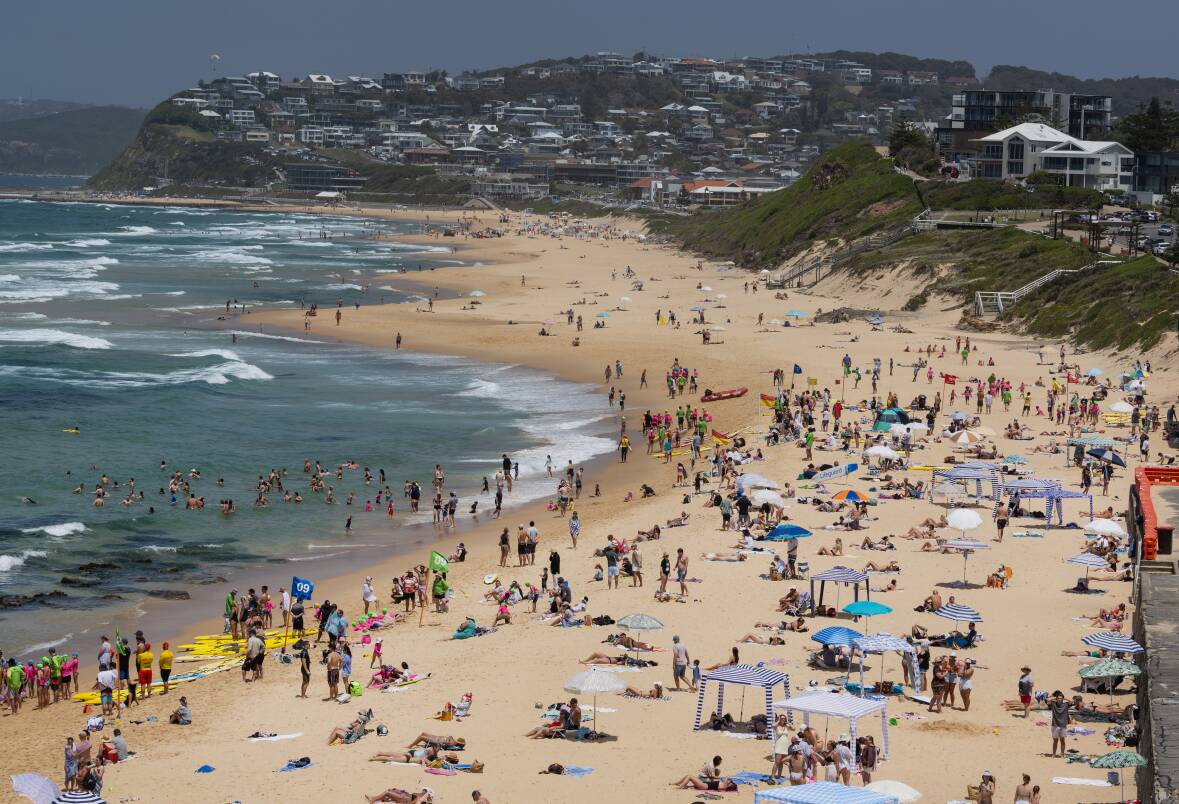
The Hunter New England district recorded 184 cases of people presenting to emergency departments for sunburn in 2022/23 - the highest in the state.
NSW Health Minister Ryan Park said "an alarming number of children and young people" were among these numbers.
He urged parents and carers to boost sun protection for children, given high sun exposure in the first 10 years of life more than doubles the risk of melanoma.
Across the state, 818 people "required care in a NSW emergency department for sunburn", a 28 per cent rise from the previous financial year.
In the last decade, about 5000 people presented to NSW emergency departments for sunburn treatment, with the highest rates seen in people aged five to 24.
Mr Park launched the NSW Skin Cancer Prevention Strategy 2023-2030 on Thursday, saying "sun damage and skin cancers are highly preventable".
He acknowledged that more needed to be done to reduce skin cancer, highlighting that "even mild exposure to the sun can lead to damage".
Mr Park said about 6000 people in NSW this year were expected to be diagnosed with melanoma - "the deadliest form of skin cancer".
Cancer Institute NSW data shows Hunter New England recorded 4135 melanoma cases from 2016 to 2020 and 386 deaths in that period.
The institute listed 25 melanoma hotspots last December, with Port Stephens ranked 12th, Lake Macquarie 15th, Maitland 20th and Newcastle 24th.
In 2022/23, the highest sunburn-related emergency department presentations in NSW were: Hunter New England (184), South Western Sydney (105), Western NSW (91), Northern NSW (67) and Western Sydney (58).
The statistics were considered "the tip of the iceberg", as not all people with sunburn will present to an emergency department.
Hunter Melanoma Foundation executive officer Claudia Tolhurst said "the most commonly diagnosed cancer in the 20 to 39 age group is melanoma".
"We're trying to educate that group more. It's our biggest area of concern to get that message across," Ms Tolhurst said.
"That age group is when they're quite vain and want a tan, but they do know slip, slop, slap. I didn't know it when I was a kid.
"They're either lying out in the sun to get a tan or forgetting to put sunscreen on. It's also the hat, sunglasses, protective clothing and finding shade. It's the whole deal."
She said it was frustrating to see people putting on sunscreen once they arrive at outdoor activities, such as going to the beach.
"Sunscreen takes 20 minutes to activate," she said.
Community concerns are rising about young people being exposed to the sun during sport.
The strategy recommends "increased adoption of sun protection policies and behaviours in sports settings".
More broadly, the strategy's push to boost access to shade and sun protection measures covers public, private and community sectors.
NSW chief cancer officer, Professor Tracey O'Brien, said UV radiation levels were "high for 10 months of the year, which is why it's vital people protect their skin all year round, even on cool and cloudy days".
Ms Tolhurst urged people to consider the UV rates, not just temperatures.
"If the UV is above three, that's when they need to protect their skin," she said.
Ms Tolhurst said "we need to follow the slip, slop, slap, seek and slide".
She warned people to make sure sunscreen had not expired and to "put enough on".
"You need a teaspoon of sunscreen for every body part - that's about the size of a 20-cent to 50-cent piece."
Professor O'Brien said protecting skin from the sun "from a very young age, and into adulthood, is key to reducing our risk of skin cancer".







